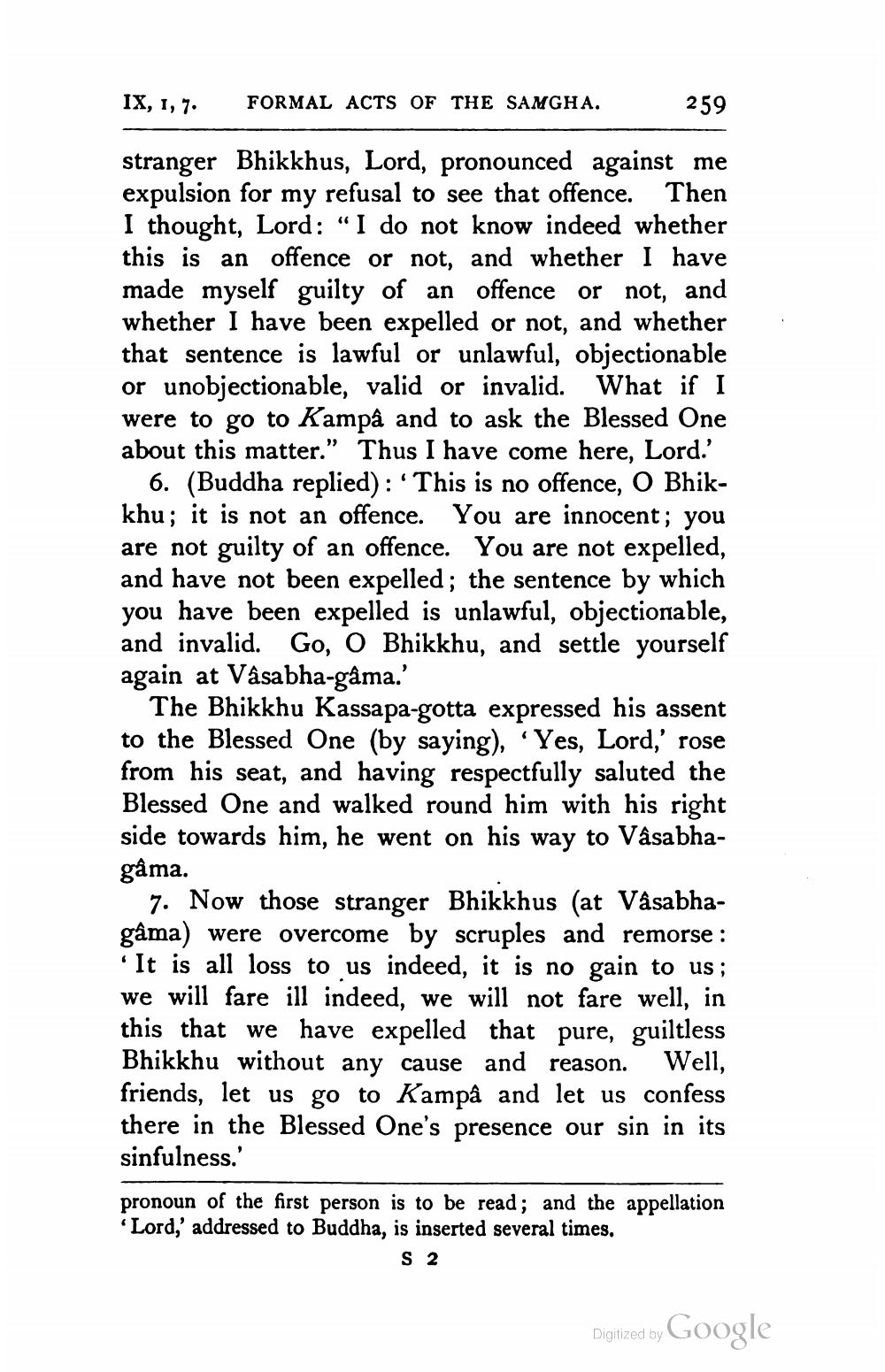________________
IX, 1, 7.
FORMAL ACTS OF THE SAMGHA.
259
stranger Bhikkhus, Lord, pronounced against me expulsion for my refusal to see that offence. Then I thought, Lord: “I do not know indeed whether this is an offence or not, and whether I have made myself guilty of an offence or not, and whether I have been expelled or not, and whether that sentence is lawful or unlawful, objectionable or unobjectionable, valid or invalid. What if I were to go to Kampâ and to ask the Blessed One about this matter." Thus I have come here, Lord.'
6. (Buddha replied): 'This is no offence, O Bhikkhu; it is not an offence. You are innocent; you are not guilty of an offence. You are not expelled, and have not been expelled; the sentence by which you have been expelled is unlawful, objectionable, and invalid. Go, O Bhikkhu, and settle yourself again at Vasabha-gama.'
The Bhikkhu Kassapa-gotta expressed his assent to the Blessed One (by saying), "Yes, Lord,' rose from his seat, and having respectfully saluted the Blessed One and walked round him with his right side towards him, he went on his way to Vâsabhagama.
7. Now those stranger Bhikkhus (at Vasabhagâma) were overcome by scruples and remorse :
It is all loss to us indeed, it is no gain to us; we will fare ill indeed, we will not fare well, in this that we have expelled that pure, guiltless Bhikkhu without any cause and reason. Well, friends, let us go to Kampâ and let us confess there in the Blessed One's presence our sin in its sinfulness.'
pronoun of the first person is to be read; and the appellation Lord,' addressed to Buddha, is inserted several times.
S 2
Digitized by
Digilzed by Google




